One of the largest issues I see during our one-on-one financial coaching meetings is the inability to save money.
Here are some facts about saved money:
Saving money is essential to long-term sustainability
Saved money relieves stress
Saved money allows you to take a chance
Saved money allows life to happen (job loss, disability, pay cut, injury, etc.) without going broke!
But you already knew that part. We all know that we are supposed to “save money for a rainy day.” Yet, even though we KNOW how important it is to save money, most people fail to do so. However, if you do not save, you can not prosper.
I challenge YOU to take the next step. If you have negative savings (no money plus overdrafted accounts and debt), the goal is to bring you to zero. If you are at zero savings, the goal is to get to at least $2,500 in a beginner emergency fund. If you have been able to save a substantial amount of money, it is my hope that you will participate in the discussion and share your own tips that have worked well for you.
Automatic Draft From Paycheck
Establish a savings account and have the money drafted from every single paycheck. Whether it is $25 or $250 per pay period – just SAVE! You KNOW that the car is going to break down. You KNOW that the school is going to send home a surprise expense.
Establishing this draft, it allows the money to be “out-of-sight.” When money is out-of-sight, it can be out-of-mind. This allows the account to grow without you robbing it!
Now, I personally had a problem with this when I did not have a monthly budget. I would ROB my own savings account about 2.1 microseconds after I was paid. Only after I had a plan developed together with my bride, Jenn, did my savings account begin growing in a healthy manner.
Create An Escrow Account For Known, Upcoming Expenses
For those unfamiliar with an escrow account, it is a savings account that is established by a mortgage company. The mortgage company totals the annual cost of property taxes and homeowner’s insurance and divides it by the number of payments being made each year. The mortgage company then pays for the taxes and insurance from this escrow (savings) account. For example, if the property taxes are $1,200/year and the insurance is $600, then the total amount needed each year is $1,800. The mortgage company will collect $150 extra with each monthly payment to place into the escrow account.
An escrow account smooths out the cost over a year – instead of having to pay for it all in one month. It tightens the monthly budget, but having a fully funded escrow account sure is AWESOME when vacation arrives and the money has already been saved to pay cash for it! Those who have a mortgage with an escrow account will testify to the fact that they never worry about paying for the taxes and insurance – ask someone!
Establish Accountability
Find someone who is:
winning with money,
not trying to sell you something
available to help you.
Ask them to hold you accountable to your saving goal. I have seen some people go to the extreme length of actually giving the money to the other individual to hold for them because they cannot trust themselves to keep their own hands off of it.
Accountability can also be created by your written spending plan that you prepare every month before the month begins (you do prepare one, right?). This plan helps cement your goals in your mind and helps you connect the fact that if you spend money on unplanned items, you will literally be robbing yourself of your savings goals.
I am married – which means I have built-in accountability. Jenn is a huge saver. She keeps me (the spender) in control. Establish accountability – it works!

